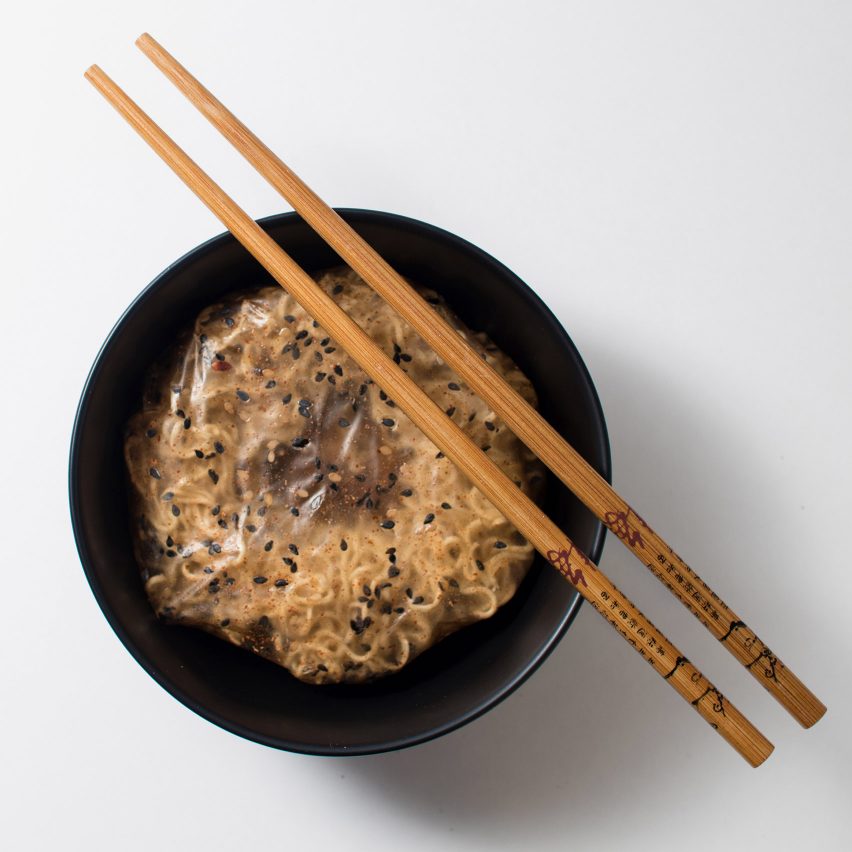
Edible ramen packaging and biomaterials are among the five sustainable design projects from the graduate class of 2020 in this VDF school show, curated by New Designers.
The theme for the exhibit is Circular Economy – a sustainable economic system aimed at eliminating waste – chosen by the organisers of the annual New Designers event in response to a surge of design students tackling environmental issues in their work.
It is one of four Virtual Design Festival school shows curated by New Designers in lieu of its annual event in London. The exhibits feature a total of 20 graduate projects and, in addition to sustainability, explore the themes of gender, boldness and nature.
The five featured projects below were completed by graduates from different courses and universities from across the UK, unified by a clear ambition to make the design world more sustainable.
New Designers graduate show
Showcase: New Designers
Theme: Circular Economy
Instagram: @newdesigners
Organiser: Upper Street Events
Event statement:
"New Designers, the UK's largest design graduate show, celebrates its 35th anniversary in 2020 with the launch of a series of digital initiatives throughout the summer. In lieu of a physical showcase, the event will aim to promote and celebrate the work of the graduate class of 2020. With these virtual initiatives, New Designers hopes to offer graduates alternative opportunities to gain better insights into the design industry and advance in their professional careers in such extraordinary circumstances.
"Since the start of June, New Designers has been running ND Selects, a social media campaign that hopes to offer visibility and recognition to students' final projects. Each day, New Designers publishes a post about different students, highlighting their final piece, alongside their processes and influences.
"This year has seen a surge in final projects that respond directly to environmental and social issues. From game design to textile prints, the class of 2020 has offered creative design solutions for contemporary storage, diagnosing dyslexia and reconnecting children with nature. Making informed and considered material choices that are either recyclable or locally sourced has also been a key focus for many students."
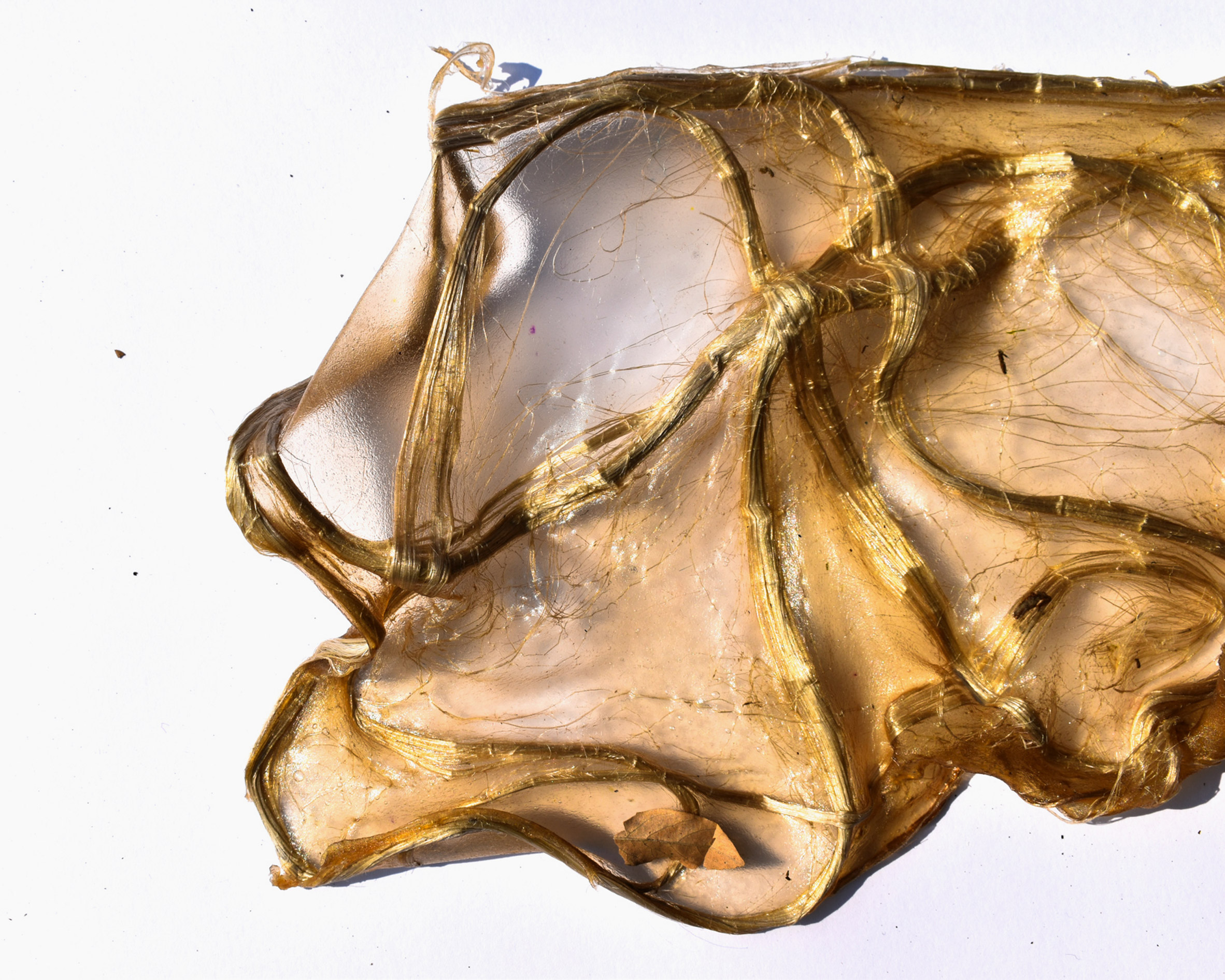
Caitlin Agnew
"The project brings together traditional textile design processes with material engineering and utilises basic cooking skills to create innovative biomaterials suitable for a fashion application.
"Using only natural and waste materials as ingredients to create the biomaterials, new screen-printing binders have been made out of natural ingredients in an attempt to make traditional screen printing more sustainable.
"The process for creating the biomaterials largely resembles cooking, using basic kitchen ingredients and appliances. New materials have been created using only waste or natural ingredients so that they are biodegradable in a shift towards a circular design system. Materials such as agar and different forms of waste such as seaweed, food waste and textile waste have been a focus for experimentation."
Name: Caitlin Agnew
University: Birmingham City University
Course: BA (Hons) Textile Design
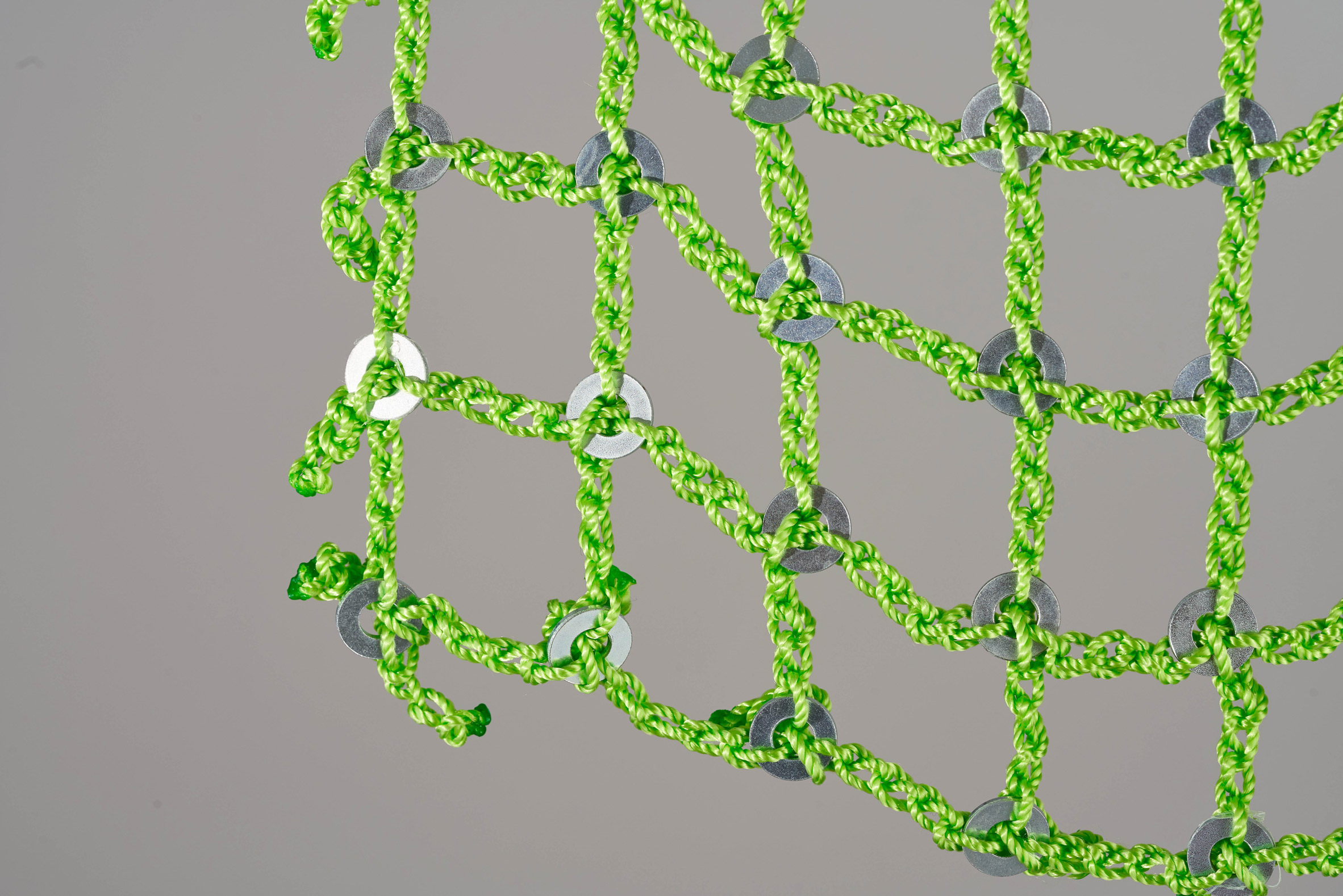
Kiera Morel
"This project explores the ways in which experimental and unconventional materials can be constructed into textiles through knitting and crochet. The samples explore qualities needed to create innovative, tactile and interactive fabrics.
"An integral part of Kiera's process was to utilise material exploration, sampling and research. Through this, she found that materials can possess different tactile qualities than they appear to. Kiera aims to challenge perceptions of materiality while creating unexpected haptic sensations when interacting with the textiles.
"Where possible, Kiera has used natural fibres for samples. When using synthetic yarns she has limited each sample to one kind of fibre to allow them to be recycled easier. She has also used waste materials in some of the machine-knitted samples."
Name: Kiera Morel
University: Norwich University of the Arts
Course: BA (Hons) Textile Design
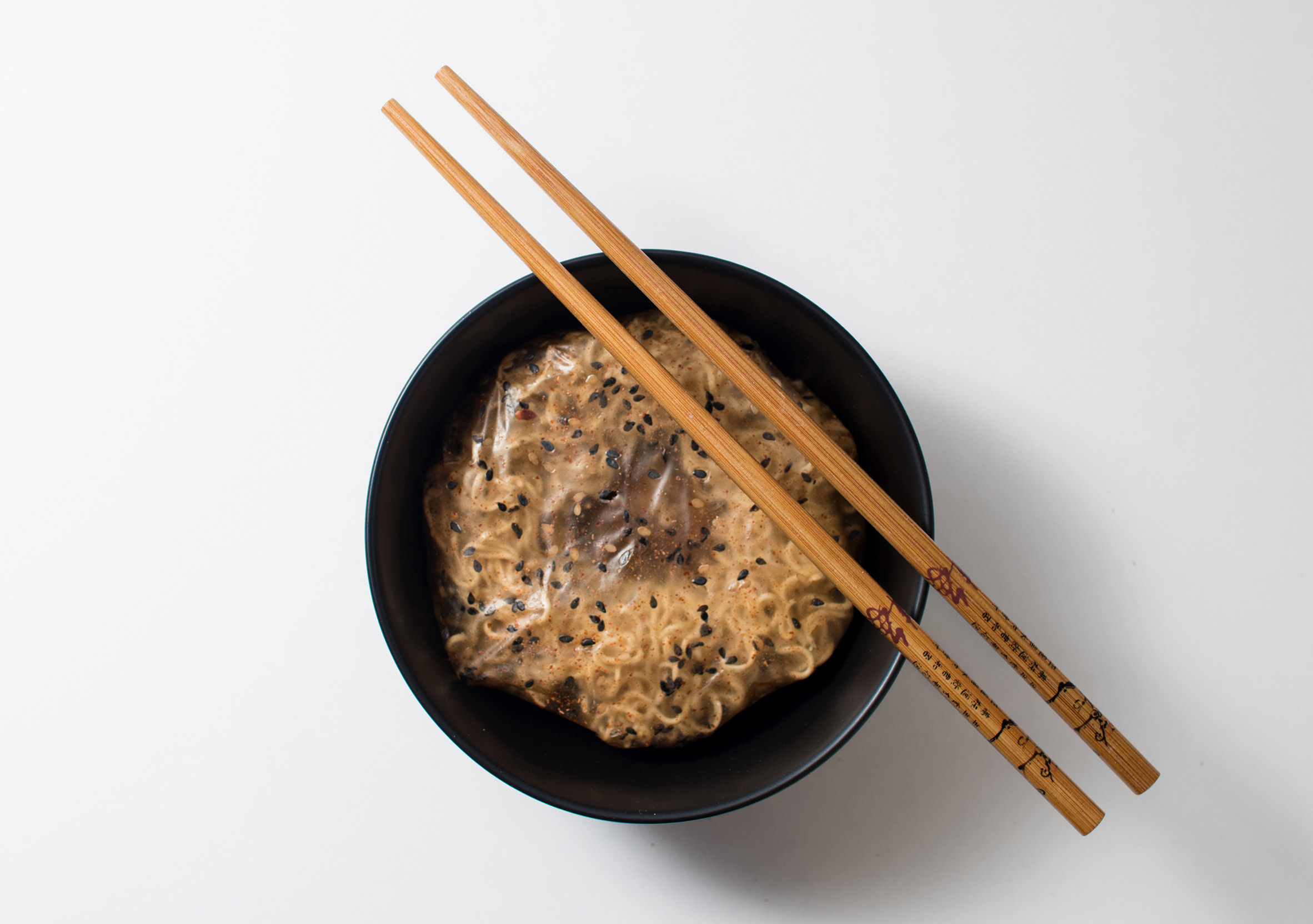
Edible, Dissolvable Noodle Pack by Holly Grounds
"The project reinvents the way ramen noodles are cooked and consumed at home while decreasing the environmental impact, by eliminating excessive single-use plastic. The dehydrated noodles are individually wrapped in an edible starch-based film, which dissolves in contact with boiling water.
"Flavourings and spices are set in the film and released when the film dissolves, eliminating the need for plastic sachets. The project aims to give consumers a sustainable option for convenience meals and has the opportunity to be developed further for a range of dehydrated ready meals.
"Sustainability was considered at every stage of the project. The biobased starch film is dissolvable and manufactured in an environmentally friendly way, by heating the natural ingredients and allowing the mixture to set in a mould to form the film. The outer paper packaging is recyclable."
Name: Holly Grounds
University: Ravensbourne University of London
Course: BA (Hons) Product Design
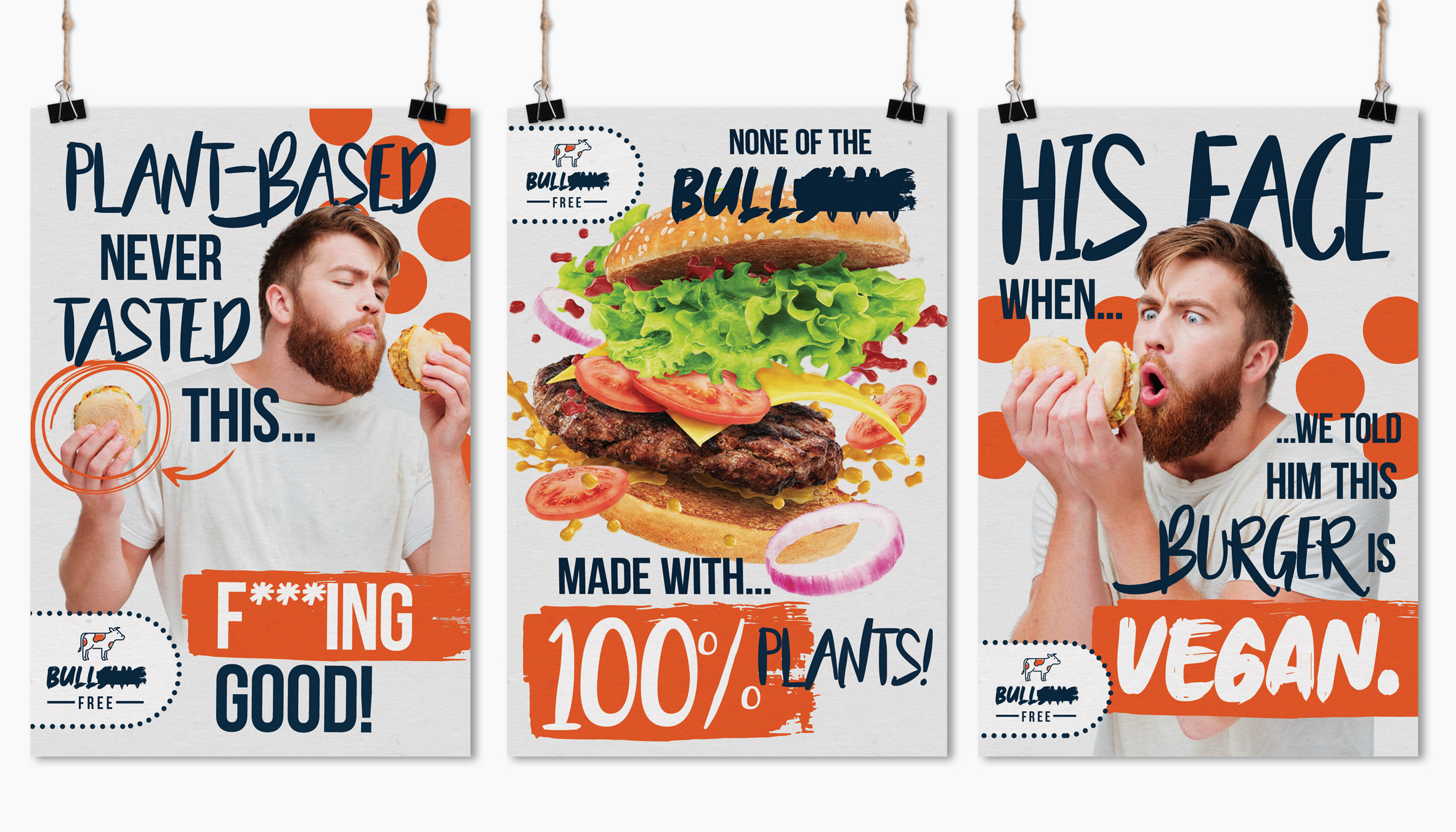
Bulls**t Free Burger by Becky Ward
"The product is called the Bulls**t Free Burger, a play on words as it would be beef free but also free from many of the additives and nasties found in plant-based competitor products.
"Becky created the branding and a 360-degree campaign strategy across billboard advertising, wrapped buses, collaboration with fast-food chains and sponsored posts on websites such as Amazon Fresh to reach audiences through a multitude of touchpoints. The brand was based around simplicity and standing out from other plant-based burger competitors.
"Traditionally plant-based meat alternatives are aimed at a vegan or vegetarian audience, Becky wanted to do something completely different and appeal to meat-eaters who were looking for plant-based swaps from time to time. The most unique part of her campaign was the collaboration with fast-food burger restaurant Shake Shack, a favourite amongst the chosen demographic."
Name: Becky Ward
University: Brunel University
Course: BSc Digital Design, BSc Visual Effects and Motion Graphics
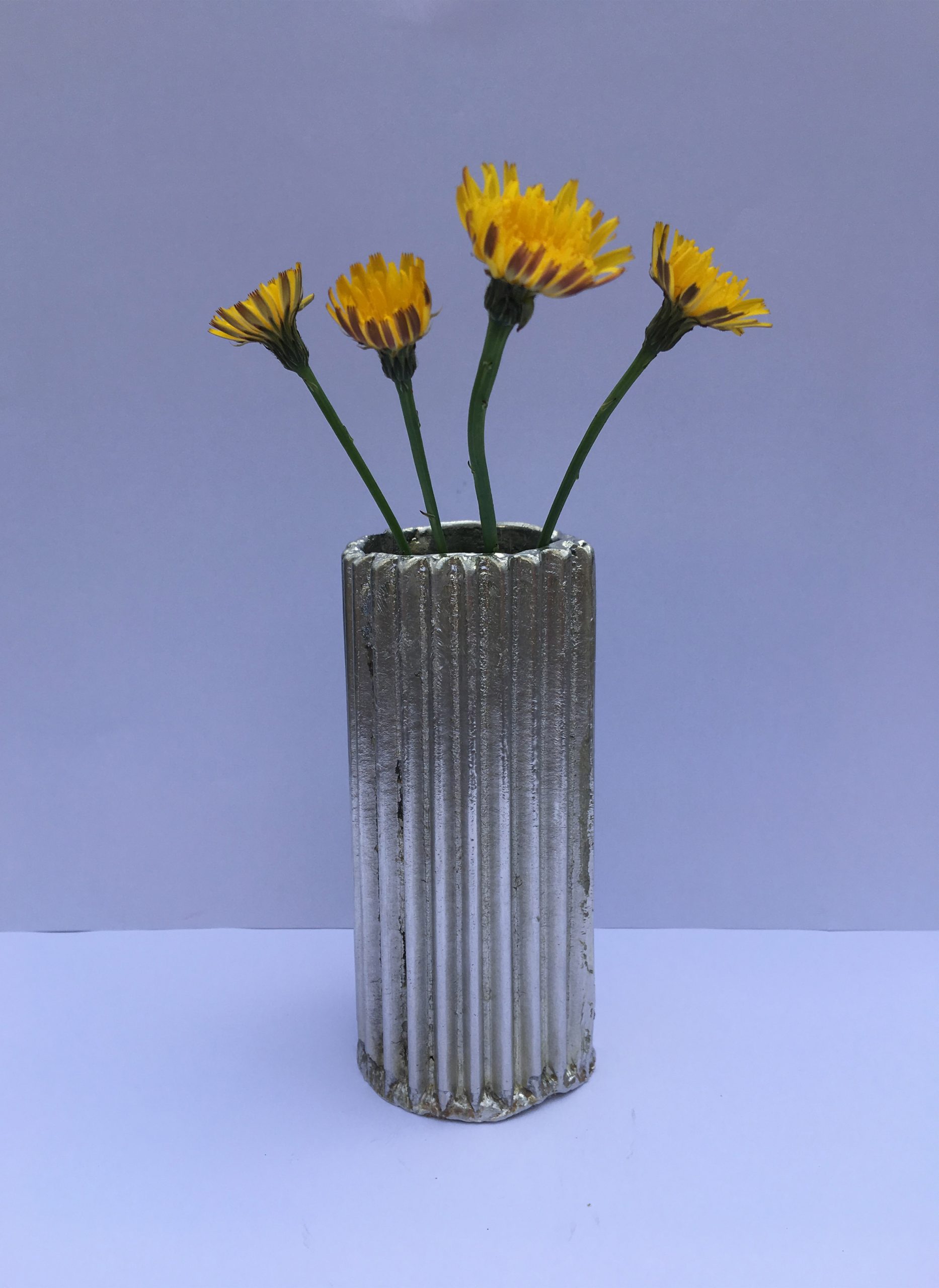
Cardboard Vase by Cathy Wolter
"While working and researching on metal casting and pewter, the fact of pewter being the fourth precious metal stood out. Once pewter was a common material, but it has been replaced by materials more responsive to mass production. However, mass production is destroying the environment, and we must find ways to reimagine our role as designers and makers.
"The inspiration for the Cardboard Vase design grew out of the desire to remove the distance between the client and the product. As facilities were restricted during the lockdown, Cathy developed the concept of pouring pewter straight into a cardboard mould to achieve a circle and a cradle-to-cradle principle.
"The Vase can be returned to the place where it was bought at any time and the value of the material be refunded. Pewter is known to have a value that fluctuates very little and can be seen as a small investment. The seller, in turn, can melt it again to produce a new product. It's a win-win situation for the customer, manufacturer and for the environment."
Name: Cathy Wolter
University: London Metropolitan University
Course: BA Furniture and Product Design
Virtual Design Festival's student and schools initiative offers a simple and affordable platform for student and graduate groups to present their work during the coronavirus pandemic. Click here for more details.
The post New Designers show sees graduates strive toward a circular economy appeared first on Dezeen.
https://ift.tt/2YNh01W
twitter.com/3novicesindia
No comments:
Post a Comment